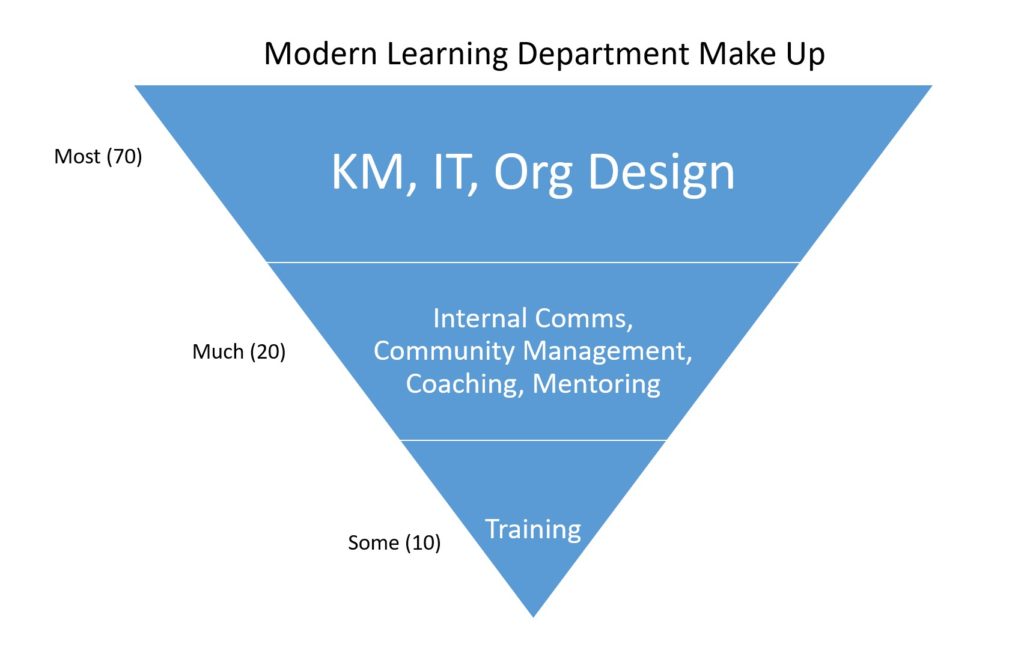I’ve always felt L&D as a department was kind of forced into that space since that’s how traditional organizational design works; skills, tasks, departments, etc. But unlike Accounting or Marketing, “learning” doesn’t play nice with ROI. We have also come to accept that “learning” doesn’t come in one flavor, i.e. training. Most, however, subscribe to the idea that people learn in doing their work, finding information, chatting with peers and experts AND then from training. Yet most L&D departments are made up primarily of training professions. This has to change.
Where many have gone wrong with 702010 is in treating it as a learning model and trying to build to some arbitrary percentages, i.e. “we need to be learning informally 70% of the time!“. No, 702010 as I’ve noted is more a principle or rule like gravity. It just is, deal with it. And maybe the best way to deal with it is by using it to build the best of kind L&D department, The Modern Learning Department.
If the majority of learning happens in and through the work we do, then organizations would be wise to invest most heavily in KM methodology and technology. Additionally, they’d need to provide new incentives and capability to help people move newfound ideas more easily into their public sphere. Incentive changes to be in reward, recognition and success measure changes as well as a reposition of management to be focused on support and growth. To do this there would then need to be significant IT and Org Design skills in this new L&D department. Next, if people learn much in social exchanges then the org needs to better invest in community management capabilities, internal comms and communications/social technology, as well as coaches and mentors embedded in the various workflows. And finally, to a lesser extent, training. If compliance box-checking is required then, of course, you need ID and elearning skills. But if not, traditional training and trainers will be the smallest part to make up this new model for L&D.
With the right mix to meet the real ways people learn, organizations can break free of the defaults we’ve seen for decades; training-centric.
To recap, A Modern Learning Department:
- 70% (Most) KM professionals, Org Designers, IT
- 20% (Much) Social Tech, Community Management, Internal Comms, Coaching and Mentoring
- 10% (Some) Trainers, ID’s, eLearning Developers


